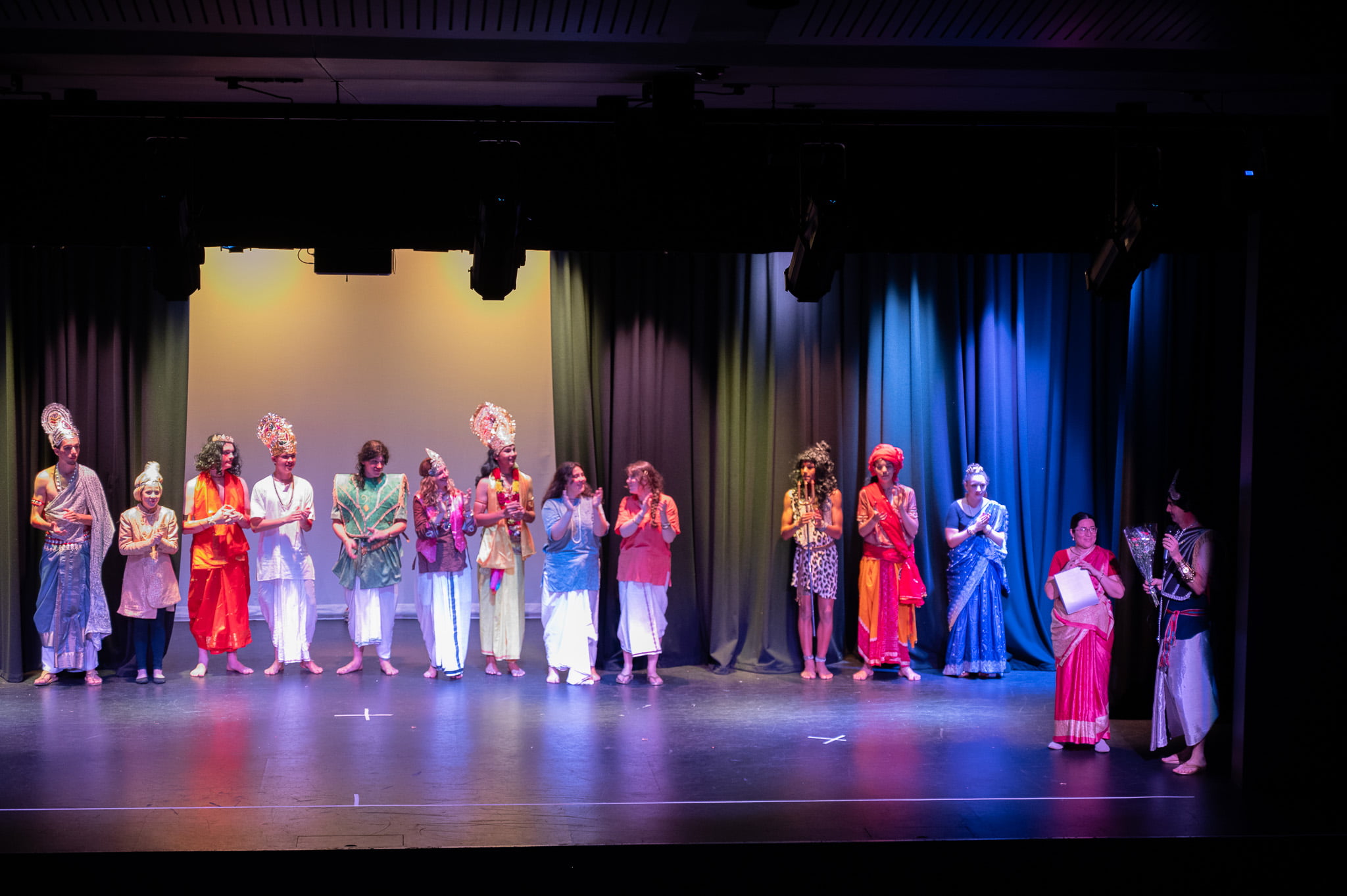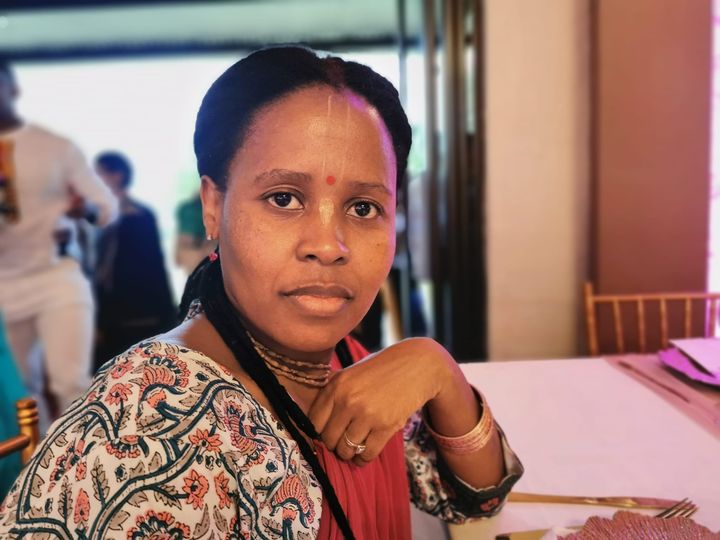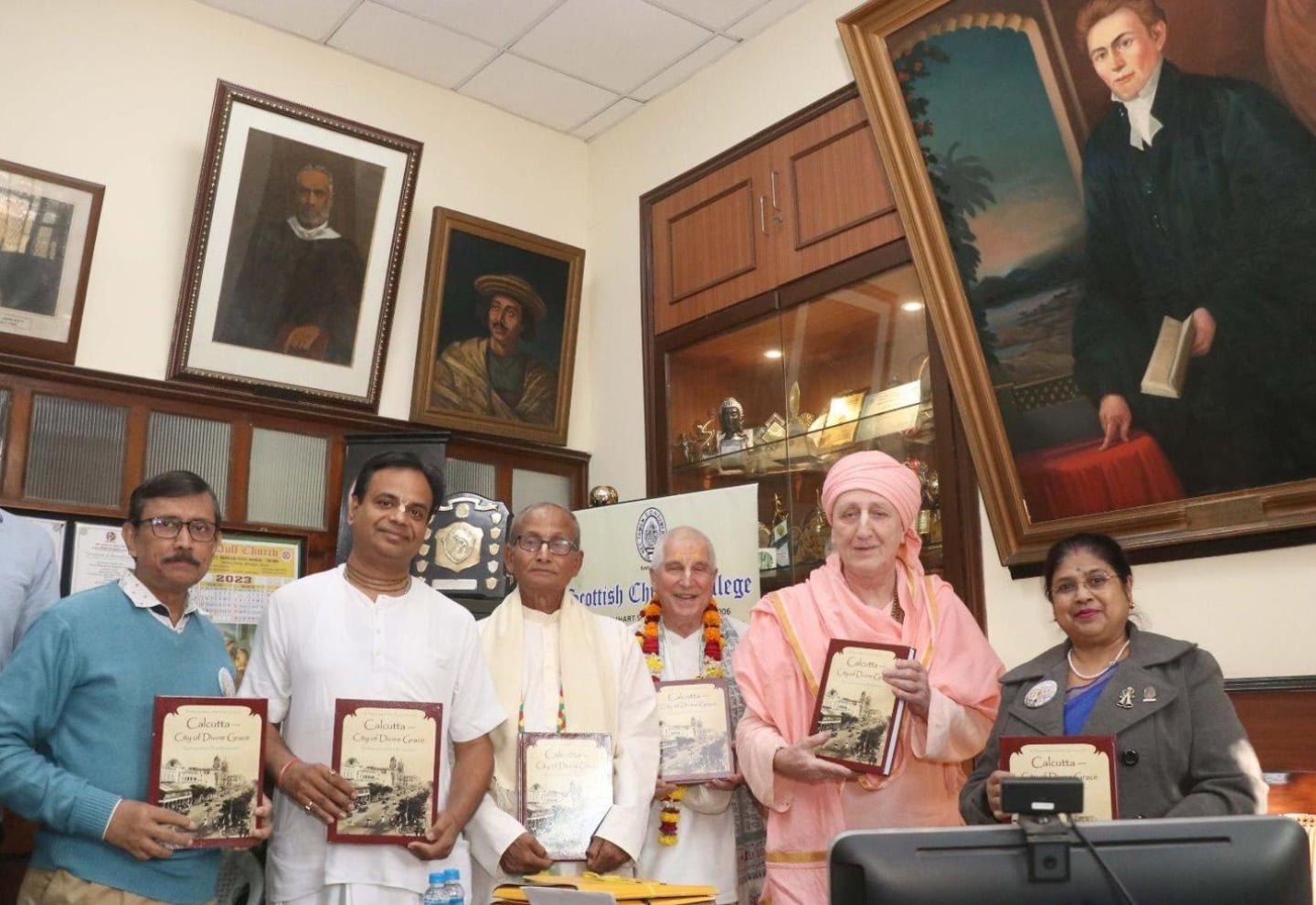Sixty New Devotees Join Gainesville’s Krishna House Over Three Years
By Madhava Smullen | Oct 28, 2011

The Krishna House in Gainesville, located just across the street from the University of Florida (UF), has seen sixty new devotees join over the past three years—an astonishing achievement at a time when few new Westerners are joining ISKCON.
It helps that the Krishna House is right next to one of the biggest universities in the United States, with over 50,000 students. But the key element, as president Kalakantha Dasa says, is that “Our whole reason for existing is to meet their needs. We are completely geared to facilitate the new person in Krishna consciousness.”
Most of those joining are young American students in their twenties, who found out about the Krishna House’s “Bhakti Academy” training program through its website, from receiving spiritual literature, or from meeting devotees at the famous Krishna Lunch program on the UF campus. There are also introductory programs for newcomers on Sundays, Tuesdays and Fridays.
“Mostly, we build relationships over time, getting to know people,” Kalakantha says. “And the people who attend our Bhakti Academy don’t do it abruptly. For example, one young man applied last week who is a senior. He told me, ‘I’ve been thinking about doing this for the past four years now.’ He finally decided to do it, because he was ready to learn and felt comfortable about taking this step.”
Students who “join” at the Krishna House enroll in its Bhakti Academy, which calls for them to spend seven months living on site, following the four regulative principles, attending the morning program five days a week, and chanting a minimum of eight rounds of the Hare Krishna mantra. To earn their room and board, they also either render fifteen hours of service a week, or pay a tuition fee. Meanwhile, as well as all this and attending their regular classes at college, they are given a comprehensive introduction to Srimad-Bhagavatam, Bhagavad-gita As It Is, and some of Srila Prabhupada’s other books.

“Everything, as I said, is geared to facilitate them,” Kalakantha says. “The lyrics to all the mantras and kirtans are projected on an overhead LCD screen, so that any new person can walk in and follow along at their convenience. The Deity worship is simplified, and the morning program schedule is adjusted with mangala arati at 6:00am instead of 4:30am, to accommodate students who may have to study late.”
The introduction to Srila Prabhupada’s books is also done in a way that ensures the most possible amount of learning for newcomers. There are two alternating Srimad-Bhagavatam curriculums, which consist of over 120 classes, and either cover the entire first canto in depth, or give an overview of all twelve cantos in which storylines from the whole scripture are summarized and prominent verses are focused upon. Classes are given every morning in place of the traditional “verse-a-day” style utilized in most ISKCON temples, chairs and tables are used, and students are free to ask questions throughout the course of the class—which they do often.
“In addition, the fact that it’s a pre-planned curriculum makes a difference in the students’ level of participation,” Kalakantha says. “They know in advance what the topic will be for the day, so they’re better able to prepare their questions and round out their understanding of the philosophy.”
Students often find themselves attracted to enroll in this program when they see other young people practicing Krishna consciousness. And when they join themselves, they discover that attending the morning program is fun, that they feel much more peaceful when following the four regulative principles, and that—especially for those attending college from out of town—the homey atmosphere and regular diet of lovingly prepared vegetarian meals is a Godsend.

As a result of this positive experience, Kalakantha says that most students re-apply to stay on at the Krishna House after their first seven months if they’re still attending UF, continuing to develop their Krishna consciousness with seminars, japa retreats and trips to New Vrindaban.
Even after they graduate from UF, nine out of ten Bhakti Academy students remain strongly connected to Krishna consciousness. The Krishna House helps them do this by connecting them with temples and congregations that will be most favorable for their continued spiritual practice, and that are close to where they live.
“It’s part of our curriculum to give them the counseling and the support to land on their feet spiritually,” Kalakantha says. “Some have gone on to live and serve full-time at other centers, while some are choosing to live and work in the outside world, practicing Krishna consciousness at home and attending the temple regularly. For instance, of two young men who graduated a couple of years ago and moved to the Bhakti Center in New York, one is now serving full time in Mayapur, India, while the other is studying to be a paramedic.”
Meanwhile, other graduates of the Bhakti Academy have made the Alachua temple, near Gainesville, their congregational home, and attend programs there regularly; while one actually oversees the day-to-day running of the Bhakti Academy. Wherever they go, however, most graduates continue chanting Hare Krishna, reading Srila Prabhupada’s books, offering their food, and attending a temple.
A small amount of those who take the Bhakti Academy training decide that they’re not ready to make Krishna consciousness a major part of their lives. But even these, when they live locally, maintain amicable relationships with the Krishna House devotees, and visit frequently.

Kalakantha feels that while the open-ended, ‘join now and worry about everything else later’ style of early ISKCON worked well in the alternative social milieu of the sixties and seventies, a finite study program that simply gives people the training to add Krishna consciousness to their lives has proven much more attractive in today’s world.
“I do think that this is the future of ISKCON’s outreach,” he says. “In any religious organization, there are a small number of clergy, and a large number of flock. We were approaching Krishna consciousness as if the only option was to be a man of the cloth. And that’s unrealistic. Religious organizations thrive when they have a relevance beyond the clergy.”
Since most people do not become monks, Kalakantha feels that the Krishna House is better off preparing them for life as Krishna conscious householders.
“Most of our teachers are householders who have been married for many years and have managed to keep a family together in Krishna consciousness, and we talk about such topics a lot in our classes,” he says. “And the students seem to appreciate that type of education and relate to it better.”
Currently the demand for training at the Krishna House’s Bhakti Academy is through the roof, but with no residential space left to accommodate any more students, devotees have been forced to turn people away.
“We plan to hopefully purchase or build a larger facility in the same location in the future, so that we can expand according to the demand,” Kalakantha says.
“There was a large building for sale nearby, but we couldn’t gather the support to afford the expensive real estate prices at the time.”
“Now that more and more people have been graduating from the Bhakti Academy, however,” he concludes, “We’re hoping that they will find it in their hearts to support this project in the future so that they can share their experience with others.”
For more information, please visit www.krishnalunch.com.












